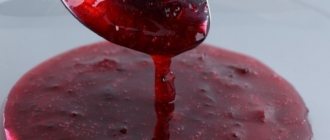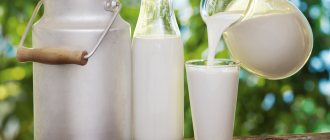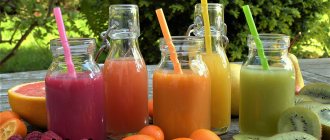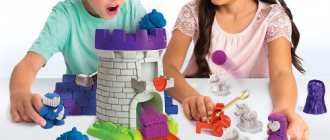Causes of anxiety when babies are not drinking
The need to add drinking water to the diet is considered if the following changes occur:
Impaired stool formation . The stool becomes hard. This causes constipation and the child does not have bowel movements for a long time. The condition leads to damage to the mucous membrane, risking obstruction.- Changes in the skin and mucous membranes. Normally, the baby should have moist eyes and mouth. With a lack of moisture, these sections become too dry, damage (microcracks) and constant dryness occur. The skin becomes flabby and pale.
- Frequent crying. It seems to the mother that the child wants to eat. But eating food does not eliminate thirst.
- Neurological abnormalities . By a certain age, the baby should roll over, sit down, and stand up with support. When dehydrated, the processes are slowed down. Additionally, numbness and limb cramps occur. If dehydration reaches an extreme stage, brain cells are damaged.
- Decreased or complete absence of urine output . This leads to kidney damage.
- Decrease in circulating blood volume. Viscosity increases and there is a risk of vascular blockage.
To eliminate these processes, drinking a small amount of water per day is sufficient.
The average volume for infants is 50-150 ml. Reference! If the baby does not drink water, but his external and internal parameters remain normal, there is no need to worry.
What liquid is best to give?
- It is not recommended to give boiled water to babies, since it is deprived of the tiny minerals necessary for the body. It is better to buy drinking water in bottles or collect it from springs or wells.
- Baby food manufacturers offer adapted dry teas for babies, which are diluted with water. Some of them have pleasant tastes, while others can help the baby cope with certain problems: constipation and colic.
- When your pediatrician allows it, you can give your baby juices. They must be specially made for children under one year old; regular drinks from well-known brands are not suitable for babies, as they contain a huge amount of sugar.
- After successfully introducing certain fruits into complementary foods, the child can try homemade unsweetened compotes made from fresh fruits or dried fruits.
- It is not necessary to warm up the baby's drink; a newborn can be supplemented with liquid with a temperature of about 30 degrees, and after 2 months the child can drink water at room temperature.
Why does a newborn refuse?
There are the following reasons why a baby refuses to drink:
a full stomach due to frequently consumed formula or breast milk;- sufficient intake of water into the body from the food consumed (breast milk largely consists of it);
- the baby does not like the taste of water;
- the method of giving drinks inappropriate for age, for example, when a newborn is given a bottle with a nipple that is too large;
- presence of illness;
- The water temperature is too cold or hot.
By eliminating these reasons, they achieve interest in drinking water.
Formula-fed baby
If a child is bottle-fed, it is worth considering a number of nuances. For example, such children are offered complementary foods and additional water earlier. If the decision to switch to mixtures is not due to medical reasons, it is better to weigh the pros and cons and evaluate the possible disadvantages.
Table of contents
|
Pros and cons of artificial feeding
If the mother does not have problems with health and lactation, but she is thinking about switching the baby to formula, it is important to evaluate the pros and cons of such feeding.
Benefits of artificial feeding
• The mother gets more freedom, since other family members can feed the baby in her absence.
• It’s easier to control food portions, so you don’t have to worry that the baby has overeaten or is hungry.
• It is easier to determine that a baby is unwell by decreased appetite if he eats less than normal.
• If an allergy appears, there is no need to painfully figure out what to exclude from the diet; the formula most likely is not suitable for the child.
• The formula takes longer to be absorbed by the baby's body than breast milk, so the baby stays full longer.
There are many advantages to this diet, but the disadvantages are more significant.
• Artificial children get sick more often, especially in the first months of life. Experts explain this by the absence of antibodies in artificial nutrition that protect infants during natural feeding.
• Constantly wasting time on washing and sterilizing feeding containers.
• Adaptation to new food – at first it is more difficult for a child’s body to digest artificial food.
• When feeding from a bottle, the baby swallows more air, so it is believed that colic is worse in artificial babies.
• Difficulties in preparing food on the road and long journeys.
• Fixed cash expenses.
• Experiments with different mixtures, due to the fact that it is not always possible to immediately select the appropriate product.
Due to numerous disadvantages, it is not recommended to switch to artificial nutrition without compelling reasons.
A bottle-fed baby cannot go to the toilet
Babies often experience constipation. This happens for various reasons. It is important to identify it and help the child cope with the problem. Experts identify several types of constipation.
• Physiological. With this type of constipation, the baby does not feel discomfort, eats well, and his stomach is soft and not painful.
In this case, the baby may not have stool for 2-3 days.
• Functional. If a baby has hard stool and grunts and strains when trying to have a bowel movement, this is functional constipation.
If this happens rarely, parents should not worry. Perhaps due to the heat there is less fluid in the body, and the stool has hardened. Or the baby tried complementary foods with a strengthening effect (for example, banana or rice porridge).
If you have temporary difficulties with bowel movements, adult help is not needed. Constant problems with bowel movements should cause concern.
Regular functional constipation occurs for several reasons:
• Sedentary lifestyle. Even a baby should be active. It is necessary to do gymnastics with him and refuse tight swaddling. This way, intestinal motility will work better.
• Lack of digestive enzymes. This is due to the immaturity of the children's digestive system. Not all enzymes work fully immediately.
• Taking medications.
• Presence of chronic diseases. Such as hypothyroidism, rickets, cystic fibrosis.
• Incorrect feeding. Constipation can be caused by overfeeding, switching from one formula to another, or lack of fluid.
• Organic. This type of constipation is associated with pathologies: the presence of adhesions, tumors, and elongated sections of the intestine.
It is rare and, most often, is detected immediately after birth.
How to help your child with constipation
There are several ways to deal with bowel problems. Methods should be chosen depending on the severity of the condition.
Massage
Suitable for infrequent problems with bowel movements.
The simplest thing is to regularly place the baby on his tummy before feeding. Also, to normalize intestinal motility, you can perform special massage and gymnastics.
Useful tips for mothers: MIXED AND ARTIFICIAL FEEDING
It is necessary to perform circular movements clockwise along the tummy. Then press the baby’s legs to the stomach and hold for about 30 seconds, then return to the starting position.
The exercise is repeated several times.
If the baby experiences pain or discomfort, exercises and massage should be avoided.
Medicines
If the baby has not had a bowel movement for a long time, and this causes him obvious discomfort, you should consult your pediatrician. He can prescribe the appropriate medicine.
List of drugs that are allowed for infants:
Suppositories with glycerin
They are safe for babies and are based on the substance glycerol. Suppositories irritate the rectum, soften stool, and speed up bowel movements.
This medicine is not absorbed by the body, but leaves it along with the stool. The effect occurs 30-40 minutes after administration of the candle.
Microlax
This is a microenema that liquefies feces. The medicine is safe for children, has a special mark for administering the drug to small children, and helps within 15 minutes.
Lactulose preparations
They soften and increase the volume of feces, act delicately, and are therefore suitable for children. Such drugs are useful for constipation not only due to their laxative effect.
They help the growth of bifidobacteria, which improves intestinal microflora. The effect occurs on day 2.
Drugs in this group include: Normolakt, Duphalac, Normaze and others.
Parents should remember that the use of any medications must be agreed with a doctor. If a child is constantly suffering from constipation, laxatives alone cannot cope.
They do not solve the problem itself, but only eliminate the symptoms. Also, chronic use of medications can lead to a problem called “lazy gut.”
The body gets used to constant help, and the intestines stop working normally.
The pediatrician will help identify the cause and prescribe adequate treatment. Artificial children are often prescribed fermented milk mixtures, which eliminate digestive problems.
When to start complementary feeding
A few months after birth, artificial nutrition ceases to provide the child’s body with all the substances necessary for growth and development.
In addition, formula-fed children accept complementary feeding more easily than infants. Therefore, the World Health Organization recommends starting complementary feeding with artificial feeding as early as 4-5 months.
The first items in the diet are juice, fruit or vegetable purees. The pediatrician will advise where to start.
All fruits except banana must undergo heat treatment. Kids eat them with pleasure; they contain many useful substances that a child needs.
Complementary feeding begins with green apples, pears, bananas, apricots, and peaches.
If fruits are the first complementary food, after 2 weeks you can introduce the child to vegetables. These are zucchini, cauliflower, broccoli, pumpkin.
Vegetables also need to be heat treated. For better absorption, you can add a drop of vegetable oil to the dish.
Babies who are underweight may be advised to start complementary feeding with dairy-free cereals.
A bottle-fed baby does not drink water
It is recommended to offer additional liquid to children who are formula or bottle-fed.
Formula formula contains more protein than breast milk. More liquid is needed to absorb it. Lack of water can cause constipation.
Water can be offered from a bottle or spoon. A few teaspoons is enough to get started.
If your baby categorically refuses to drink, you should not force him. It's better to offer it later.
Experienced mothers say that some formula-fed babies don't drink extra water for several months and still feel great.
The individual characteristics of the child should be taken into account.
Water is usually offered between feedings. After all, babies have very small stomachs and may not be able to accommodate additional liquid immediately after taking the formula.
In some cases, you should increase the amount of additional fluid you drink. For example, in the heat, when the baby is overheated, in a room with dry air.
What kind of water to give your child
The temperature of the liquid should be slightly lower than the mixture. Approximately 26 degrees. By three months you can gradually bring it to room temperature.
It is better not to use boiled water. During the boiling process, all useful substances die in it, but chloride compounds remain.
It is better to use special bottled water. Baby water marked 0+ is considered the safest.
It is important for parents to take into account the nutritional and supplemental feeding habits of a baby using formula, to notice in a timely manner any problems that arise and solve them, if necessary, in consultation with a pediatrician.
Arina Nagovitsyna
JOURNALIST Higher education: Faculty of Journalism and Mass Communications
Should the child be forced?
If you forcefully desolder a baby, the following side effects will develop:
- nausea, vomiting, leading to inflammatory damage to the digestive tract (the stomach contains hydrochloric acid, which, when thrown back into the esophagus, causes damage to the mucous membrane);
- psychological aversion to drinking water;
- choking (water moves not into the gastrointestinal tract, but into the pulmonary system);
- the child's crying to the point of hysteria.
Carefully! In order for the baby to get used to the taste of water, the daily amount is not given at once, but is accustomed gradually, in small portions.
What kind of water can be given to a newborn?
It is recommended to give bottle-fed babies water some time after feeding, that is, in the intervals between them. Parents must certainly take into account the simple fact that babies have a small stomach, so they simply cannot drink a lot of water at once. Therefore, a couple of teaspoons at first will be quite enough.
Sometimes the need for fluid in a child’s body increases. The reason for this may be dry air in the room, overheating, etc. This usually happens when the baby is wrapped excessively. Against the backdrop of dry indoor air, rapid breathing is noted. This not only makes swallowing difficult, but also significantly reduces the child’s body’s defenses. The situation gets worse in hot summer weather.
How to teach a baby?
It is impossible to force a baby to do anything. There are many ways to teach your child to drink from:
- spoons,
- bottles,
- sippy cup,
- mugs.
It is recommended to use all methods in a playful manner. It is forbidden to coerce or force.
Daily ways
When a baby is healthy, he or she may not drink the entire recommended amount of water. It should enter the body gradually, without coercion.
There are several simple ways that will allow your child to gradually get used to its taste:
A game . For example, they start training with a teaspoon. A few milliliters of water are poured into it. The baby is told that this is a train or an airplane that should fly into his mouth.- Personal example. When adults eat or drink, the child wants to do the same. Therefore, he independently reaches for the mug, repeating after his parents.
- Submission form . If the baby does not want to drink water from a bottle, offer a teaspoon or an ordinary mug. The water is not poured in full, but in doses.
- Measuring syringe . This is a device used to give medicinal syrups to babies. For example, a syringe from Nurofen. A small volume of water is filled into it and injected into the cheek. It is not recommended to use a large amount to prevent the baby from choking.
- Soldering before meals . On an empty stomach, children are more likely to drink water.
One of these methods should help the child. If he still does not want to drink water, there is no need to rush. Every baby gradually gets used to it.
In case of illness
When a baby's body temperature rises, moisture evaporates from the surface of his skin and mucous membranes. Frequent breathing and shortness of breath appear, this leads to an acceleration of the release of water through the lungs. Mild, moderate, and severe dehydration gradually occurs.
Depending on the condition, different measures are taken:
- Slight dehydration. The child continues to be fed through a spoon, sippy cup, or bottle. An increase in temperature causes thirst, at which point he begins to drink water.
- Moderate dehydration . The temperature is brought down so as not to provoke convulsions and other complications. At this stage, the child should feel better; water is offered every 10-15 minutes. If the baby does not want to drink, you can pour a small amount of water into the inside of the cheeks using a measuring syringe.
- Severe dehydration. If you do not drink water and rehydration products (powder with minerals, trace elements), consult a doctor. Intravenous infusion of saline solution with glucose is recommended to prevent the death of the baby.
Attention! Without soldering during illness, complications may arise. These include cramps and numbness of the limbs. During seizures, brain cells are damaged, which leads to nervous system disorders.
To drink or not to drink?
When a baby is breastfed, he also wants to drink, but many breastfeeding experts say that pure water is completely unnecessary for an infant until six months. However, in practice this does not always happen - for example, in the hot season, a newborn baby’s need for water is much higher than in winter. It is said that the advice not to feed your baby comes from the well-known Declaration of “10 Principles of Successful Breastfeeding”, published in 1989. Point six states: “Do not give newborns any other food or drink other than mother’s milk, except for medical reasons.” Very good advice for the newborn period, which lasts the first 28 (!) days of a baby’s life. At this time, it is very important to establish lactation and encourage the baby to reach for the breast as often as possible. And then drink to your health!
What to do if a newborn does not want to drink?
Almost every baby refuses to drink water. For him, breast milk or formula tastes better.
Therefore, the baby may spit or cry during desoldering. In order not to cause psychological rejection, it is forbidden to force water into the baby’s mouth.
This method is not suitable during periods of well-being or illness. Soldering under force will lead to crying, hysterics, and choking.
All actions are performed gradually. If the baby did not drink at 3 months, then at six months he may like it . In the absence of deterioration in health, dehydration, there is enough fluid in the baby’s body. It is best to re-offer water in the summer when thirst occurs.
In the video, Dr. Komarovsky discusses why babies refuse water:
Important! If you completely stop drinking water, it is recommended to stop offering it. When the baby forgets its taste, they are offered to drink it again. He might like her more next time.
We come to an agreement with the child
Take full advantage of your skills as a speaker and diplomat. Make him an offer he can't refuse.
Toys, games, cartoons, promise to do what you have been putting off for so long.
For example, play train with him or read a long fairy tale, decorate the Christmas tree, you yourself know what the child asked you to do.
Think about it, there are many activities that you can easily turn into water play. From the soda shop to refueling your car. Where you are is the car that came to refuel.
For girls, offer a flight to the moon or water flowers from your mouth, drawing water, the child will swallow some of the water.
Orbiz - a miracle of water
These fairly cheap and practical balls work on the principle of absorbing water, due to this they increase in size tens of times.
Show how balls grow in water and offer to play the same game trying to get water into your mouth.
Who will drink more water faster or more?
Involve everyone, even neighbors if necessary, take part in competitions, it is important that the dosage and speed are adequate to the child’s age.
Taster
Let everyone and everywhere have water, so you can offer to taste from mother’s, father’s, grandfather’s cups or cups of dolls or toys and choose the most delicious drink or water.
If you promise your child something in return, then it is better to be careful with food, so sweets or cakes are still not worth it.
WHO recommendations
Full breastfeeding does not involve supplementing the baby with food. According to WHO, mother's milk fully compensates for the baby's fluid needs. Its composition is as follows:
- water (88%);
- lactose (4.6%);
- fats (3.6%);
- proteins (3.2%);
- minerals (0.7%);
- less than 0.1% vitamins, hormones and other substances.
The amount of water in milk remains unchanged at all stages of lactation. At the same time, the concentration of other components may vary depending on the needs and requirements of the baby.
Mothers are interested: if the child does not drink water, what to do? They should understand the following. Milk is a completely adapted product, suitable for its proper development. It also contains sufficient amounts of water.
If for some reason it is not possible to organize breastfeeding, then when consuming formula milk, the newborn needs full supplementation.
Sometimes other situations arise. In some cases, during breastfeeding, a situation arises when the newborn needs to be given additional water.
But what kind of water should you give your baby?
Children are often given regular boiled water. But in practice, during boiling, not all bacteria present in the liquid are destroyed, and the chloride compounds in it remain in full. But even from open sources, water can be dangerous and completely undrinkable. In addition, water that is purified in conventional filters such as jugs, which are designed for adults, is not suitable for children.
Due to these circumstances, children are given exclusively children's bottled water, which can be purchased in the children's department of the store or pharmacy. The packaging will certainly contain special markings about the quality and safety of the water. Do not forget that water for infants differs in the content of minerals, sodium, calcium, magnesium and potassium.
Such water is not boiled, but it will not be stored for long.











